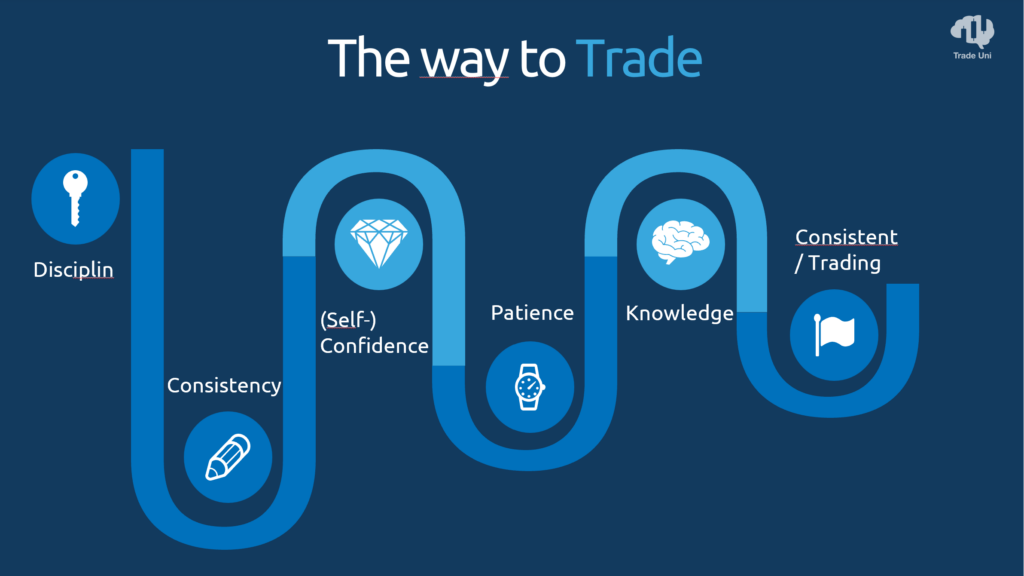
The key to success is discipline. It requires a disciplined and routine approach. It should be process-orientated. Not a game of chance in which you hope for results. Because: hope dies last… – but it dies…
So: planned action, with the knowledge that the statistics are on our side. The trading plan is an important tool for this. It helps us to treat trading not like a hobby, but like a business. If we treat trading like a hobby, then it will be paid like a hobby – and I don’t know about you, but all my hobbies cost money – none of them earn me any: so we have to treat trading like a business in order to earn money with it.
The next point is consistency, i.e. bringing consistency to trading. Don’t get distracted by trades that don’t work out, but keep going.
And then confidence, in two respects: firstly, confidence in the fact that you can earn money through trading. And the proof is there! Just take a look at the brokers’ homepages. They have to disclose in the small print how many retail investors (private investors) lose money with them. This is usually between 70% and 85%. That sounds like a lot at first. But the good news is that there are those 15% – 30% who actually make money through trading. And this raises the question of what these people actually do differently from those who lose.
And the second thing about confidence is self-confidence. In other words, that I believe I can earn money through trading.
And then we come to patience: one of the most difficult points, but we must always bear in mind that trading is NOT a get-rich-quick scheme. Trading is a marathon, not a sprint. And that’s why: if there is no setup, we don’t get in. If I look at the charts long enough, I always find a reason to enter, even if it’s far-fetched. That is not expedient. As traders, we are not paid to do as much as possible, to be as busy as possible. We are paid for the quality of our decisions. And that is very important here. And since our number one rule is still: “Don’t lose money!”, we prefer to stay out of the markets rather than enter into half-cocked trades.
Then, of course, there is the knowledge, the expertise required to be successful in trading. This naturally includes the various types of analyses, strategies, risk and opportunity management, technology and, last but not least, psychology.
And only all these points have been mastered, success and profits can follow.










































